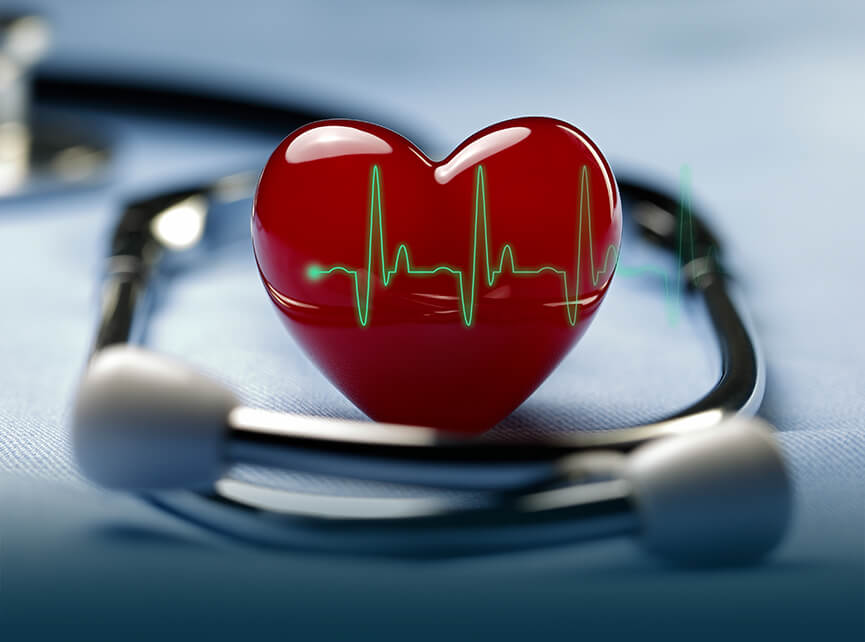Your essential guide to Cardiology: Understanding risk, prevention, and care
Your essential guide to Cardiology: Understanding risk, prevention, and care
Blog Article
Recognizing the Importance of Cardiology in Modern Medical Care Solutions
Cardiology plays an essential function in modern health care, particularly as heart problem continues to be the leading cause of mortality worldwide. Advances in diagnostics and therapy have actually transformed person treatment, enabling earlier interventions and enhanced results. The change towards precautionary cardiology equips individuals to manage their health proactively. As technology proceeds to advance, the assimilation of cutting-edge remedies might additionally redefine cardiology's influence on public health and wellness, prompting a closer examination of arising patterns and their ramifications.
The Occurrence of Cardiovascular Disease and Its Influence On Public Wellness
Heart disease continues to be the leading cause of death around the world, its effect extends much beyond individual clients to affect public wellness systems and economic climates. The high prevalence of heart condition puts a substantial pressure on health care sources, requiring increased funding for rehabilitation, treatment, and prevention programs. Public health efforts should address risk elements such as obesity, cigarette smoking, and less active way of lives, which contribute greatly to the rising incidence of heart conditions.Moreover, the economic worry connected with heart problem is immense, incorporating not just direct medical costs yet also indirect costs connected to lost efficiency and early death. Communities deal with obstacles in managing these costs, commonly leading to disparities in health care accessibility and end results. As the population ages and lifestyle-related risks remain to intensify, the necessity for reliable cardiology interventions ends up being extremely important. Attending to heart illness is not only a matter of private health and wellness however likewise an important public wellness priority.
Advancements in Cardiac Diagnostics and Imaging Techniques
Current innovations in heart diagnostics and imaging techniques have transformed the field of cardiology, improving the capability to identify and monitor heart problem. Strategies such as heart MRI, CT angiography, and echocardiography have become increasingly innovative, giving in-depth photos of cardiac frameworks and features. These techniques allow for the very early recognition of conditions like coronary artery disease, heart failing, and valvular disorders.Moreover, improvements in non-invasive diagnostics, such as wearable technology and remote surveillance tools, have empowered clients and doctor. These tools assist in real-time monitoring of heart rhythms and various other necessary indications, bring about prompt treatments. In addition, expert system is being incorporated into imaging evaluation, improving accuracy and effectiveness in diagnosis.
Advancements in Therapy Choices for Heart Conditions
Current advancements in cardiology have actually resulted in substantial developments in therapy options for heart disease. These include sophisticated medical methods that boost procedural results and arising medicines that supply new opportunities for treatment. As the field progresses, these innovations play a crucial role in enhancing person care and results.
Advanced Surgical Techniques
Advancements in medical techniques have actually changed the landscape of cardiology, offering new expect people with heart conditions. Minimally invasive treatments, such as catheter-based treatments, have actually significantly minimized recuperation times and hospital remains. Methods like robotic-assisted surgical procedure enhance precision, allowing specialists to browse intricate physiological frameworks with greater accuracy. Advancements in imaging technology help with real-time visualization during procedures, improving outcomes. Transcatheter aortic valve replacement (TAVR) exemplifies an advancement in treating aortic stenosis, enabling valve replacement without open-heart surgical procedure. In addition, hybrid strategies that incorporate catheter-based and medical techniques supply tailored services for various cardiac concerns. These innovative medical methods not only enhance client security however likewise increase therapy choices, underscoring the crucial role of innovation in modern-day cardiology techniques.
Emerging Treatments and medicines
As the landscape of cardiology remains to advance, arising treatments and medicines play a critical role in boosting treatment options for heart disease. Advancements such as novel anticoagulants and progressed lipid-lowering agents have actually changed the management of heart diseases, greatly lowering individual morbidity and mortality. Furthermore, the development of genetics therapies and regenerative medication provides encouraging opportunities for dealing with conditions formerly considered incurable. Scientific tests are constantly disclosing the effectiveness of these treatments, pushing the borders of conventional therapies. The integration of electronic wellness technologies assists in tailored medicine, enabling for customized therapy strategies based on genetic and way of life variables. Jointly, these developments highlight the vibrant nature of cardiology, boosting patient outcomes and redefining requirements of treatment in modern-day healthcare.
The Role of Preventive Cardiology in Client Treatment
Preventative cardiology plays an essential role in client care by concentrating on the recognition of threat variables that add to heart disease. Through lifestyle adjustment techniques and early detection methods, doctor can properly lower the occurrence of cardio occasions - Cardiology Jupiter. This proactive approach not only improves patient results however also promotes long-term health
Threat Factor Identification
While heart diseases continue to be a leading source of morbidity and death worldwide, efficient danger variable identification acts as a keystone of precautionary cardiology. Determining risk factors such as high blood pressure, diabetic issues, hyperlipidemia, and family history is important for very early intervention. Healthcare specialists use various evaluating techniques to evaluate these aspects, enabling for customized safety nets. In addition, comprehending a patient's way of life choices, such as smoking cigarettes and physical inactivity, better notifies threat evaluations. This thorough examination enables medical professionals to develop individualized care plans focused on mitigating risks. By focusing on risk aspect recognition, health care systems can boost patient results and lower the overall problem of cardiovascular illness, inevitably contributing to enhanced public wellness strategies and resource allowance.
Lifestyle Adjustment Methods
A multitude of research studies highlights the important role of lifestyle adjustment approaches in reducing heart disease danger. These approaches incorporate dietary changes, enhanced exercise, smoking cigarettes cessation, and weight management. By adopting a heart-healthy diet rich in fruits, vegetables, whole grains, and lean proteins, people can reduce cholesterol degrees and blood stress. Normal exercise reinforces the heart and boosts overall cardio health. Additionally, quitting smoking significantly decreases the danger of cardiovascular disease and improves see this website recovery rates for those with existing conditions. Weight management further adds to cardiovascular health by alleviating other danger variables such as diabetes and high blood pressure. Applying these way of living transforms not just promotes individual health yet additionally works as a foundation of preventive cardiology in patient treatment.
Very Early Detection Techniques
Way of living alterations considerably contribute to reducing heart disease dangers, but they are most reliable when combined with early detection strategies. Precautionary cardiology emphasizes the value of determining potential heart concerns before they escalate right into major problems. Methods such as high blood pressure surveillance, cholesterol screening, and progressed imaging innovations like echocardiograms play essential duties in assessing cardio health and wellness. Biomarkers and hereditary testing additionally improve the accuracy of early discovery, enabling customized precautionary approaches. Routine heart danger analyses equip doctor to intervene proactively, potentially preventing cardiac arrest and strokes (Dr Garcia). By incorporating these very early detection techniques right into routine care, people can benefit from prompt way of living interventions and targeted treatments, inevitably enhancing and enhancing end results top quality of life
Integrating Technology Into Cardiology Practices
As improvements in modern technology remain to reshape different areas, the integration of innovative tools and systems right into cardiology techniques has actually become vital for boosting person care and outcomes. Telemedicine platforms permit cardiologists to keep an eye on people from another location, improving access to care while decreasing the problem on health care centers. Wearable tools, such as smartwatches, make it possible for continual heart price monitoring, alerting both clients and doctors to prospective problems in real-time. Furthermore, expert system (AI) is being used to examine huge amounts of cardiac data, assisting in early diagnosis and personalized treatment strategies. Advanced imaging techniques, including 3D echocardiography, enhance visualization of heart try this out structures, resulting in much more precise interventions. Digital wellness documents (EHRs) improve client information management, ensuring that cardiologists have prompt accessibility to important data. Together, these technical improvements are transforming cardiology, promoting aggressive administration and improved health outcomes for people with cardio conditions.
The Relevance of Individual Education and Interaction
Patient education and learning and engagement play a crucial role in the monitoring of cardiovascular health and wellness. By equipping individuals with knowledge regarding their problems, treatment choices, and lifestyle modifications, medical care companies encourage individuals to take an energetic duty in their care. This positive strategy can result in enhanced adherence to suggested medications, dietary adjustments, and exercise regimens, eventually lowering the risk of complications.Engagement likewise promotes a solid patient-provider relationship, encouraging open communication and depend on. When patients feel notified and included, they are most likely to voice concerns and ask questions, which can cause much better professional outcomes. Additionally, educational resources, such as workshops or digital platforms, can improve understanding and advertise self-management methods. On the whole, focusing on patient education and engagement is important for improving cardiovascular health and wellness, enhancing lifestyle, and minimizing health care expenses connected with cardiovascular illness.
Future Patterns in Cardiology and Their Potential Impact

Frequently Asked Questions
What Way Of Living Adjustments Can Minimize Cardiovascular Disease Danger?
The current question addresses way of living adjustments that can considerably minimize cardiovascular disease risk. Cardiology Jupiter. Adopting a well balanced diet plan, taking part in normal exercise, preserving a healthy weight, taking care of anxiety, and preventing tobacco can especially enhance cardiovascular wellness
Exactly How Can I Acknowledge Early Indicators of Heart Troubles?
Recognizing early indicators of heart troubles entails surveillance symptoms such as upper body pain, lack of breath, exhaustion, and irregular heart beat. Prompt recognition of these indications can motivate essential clinical analysis and treatment for much better outcomes.
What Are the Distinctions In Between Cardiologists and Cardiac Surgeons?
The differences between cardiologists and cardiac surgeons lie in their roles; cardiologists largely identify and handle heart problems via non-invasive approaches, while cardiac cosmetic surgeons execute medical treatments to correct structural heart problems. Each plays a crucial, distinctive role.

Exactly how Frequently Should I Obtain My Heart Health Checked?
The regularity of heart medical examination varies based upon private danger elements. Typically, adults ought to undergo evaluations every one to 2 years, while those with existing conditions might require more regular assessments as recommended by health care experts.
What Duty Does Genes Play in Cardiovascular Disease Danger?
Genetics considerably affects heart condition threat, with domestic patterns suggesting acquired conditions. Details genetics can predispose people to high blood pressure, cholesterol issues, and other cardio troubles, highlighting the relevance of genetic screening in examining heart health. Heart illness remains the leading reason of fatality around the world, its impact prolongs much past private clients to affect public health and wellness systems and economic climates. Public wellness initiatives must address threat factors such as weight problems, smoking cigarettes, and sedentary lifestyles, which add substantially to the rising occurrence of heart conditions.Moreover, the economic concern connected with heart illness is immense, encompassing not just direct medical expenses however likewise indirect expenditures related to lost performance and early mortality. Precautionary check my source cardiology plays an essential role in client treatment by concentrating on the recognition of threat elements that contribute to heart condition. Artificial knowledge (AI) and machine knowing are improving diagnostics and person monitoring, enabling very early detection of heart diseases. The distinctions in between cardiologists and cardiac surgeons exist in their roles; cardiologists primarily detect and handle heart conditions via non-invasive techniques, while cardiac specialists carry out medical procedures to remedy structural heart issues.
Report this page